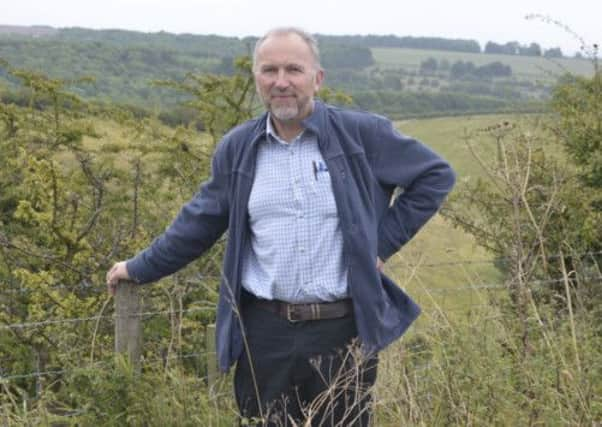Praise for farms that are wild at heart


For centuries farmers across Yorkshire have been working hard to encourage wildlife on their farms.
However, there are some areas of farmland in the county that have exceptional potential to help much of our declining wildlife begin to recover. One of these areas is the Yorkshire Wolds and coast which is why the RSPB is currently targeting its free conservation advice at farmers and landowners in the area.
Advertisement
Hide AdAdvertisement
Hide AdBy concentrating our efforts here and in other areas around the country with similar potential, we hope to make significant steps to reverse the declines in birds such as linnets, lapwings and skylarks, which have halved in number.
We want help corn buntings and grey partridges before they vanish from our countryside altogether and also create homes for other struggling species that have declined ranging from bees to brown hares. A recent report called The State of Nature found that six out of ten monitored farmland species have declined in the part 50 years.
The Yorkshire Wolds and the coast contain some excellent habitats with lots of farmland birds including corn buntings, yellow wagtails and grey partridges. There are also some great places for wild flowers and rare butterflies such as the marbled white. In this area, I’ve been lucky enough to work with many inspirational farmers who have really gone the extra mile to help their local wildlife.
For example, Iain Hurst has created a haven for nature at Rosemount Farm, Weaverthorpe, hosting numerous important farmland bird species, as well as a range of rare wild flowers. Meanwhile, father and daughter team John and Ruth Harrison have dramatically increased the number of lapwings, tree sparrows and other declining bird species at Duggleby High Barn, near Malton. Iain and the Harrisons are both recent regional winners of the RSPB’s Nature of Farming Award, which celebrates our most wildlife-friendly farmers. I must also mention JSR Farms near Driffield whose sterling conservation efforts earned them the accolade of Highly Commended in this year’s RSPB Nature of Farming Awards. I know from my experience working as a farm manager and most recently as a conservation adviser across Yorkshire that wildlife can flourish on commercially successful farms.
Advertisement
Hide AdAdvertisement
Hide AdBesides those mentioned above, I am working with a number of farmers in the area who are also doing excellent work for wildlife on their land.
Many of them are sowing the edges of their fields with wild flowers such as ox eye daisy, lady’s bedstraw and red campion to attract butterflies and other insects.
Most important of these are wild bees, which are responsible for two-thirds of pollination in the countryside.
Many farmers are sowing wild bird seed mixes to feed farmland birds during the harsh winter months when they struggle to find food.
Advertisement
Hide AdAdvertisement
Hide AdThese typically comprise cereals, millet, mustard, dwarf sunflowers and fodder radish.
Some farms are also providing shelter for wildlife with specially managed hedgerows and boxes for bats, owls and tree sparrows.
We are going to be working in the Wolds for the long-term so I would be very pleased to hear from farmers interested in giving nature a home on their land.
You can contact Chris Tomson on 07900 164 601 or email at [email protected].